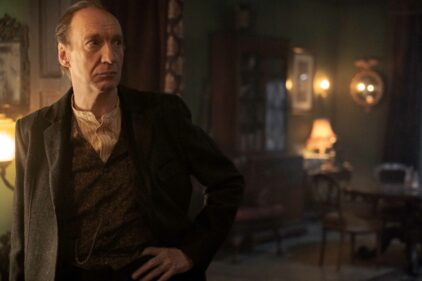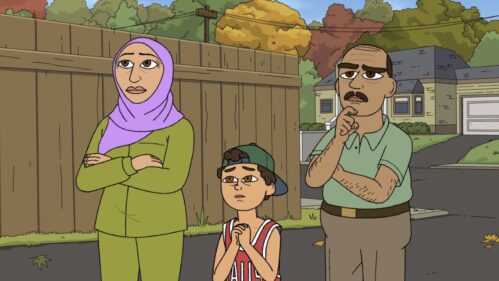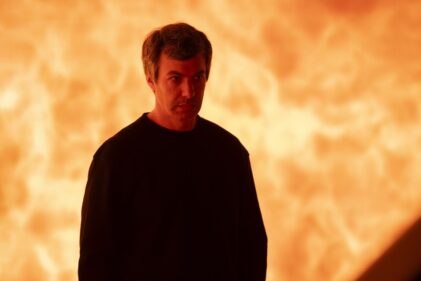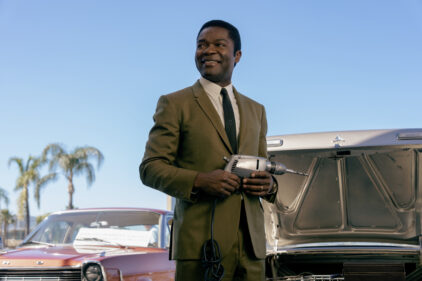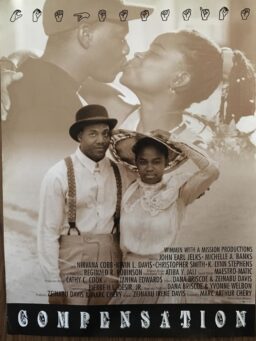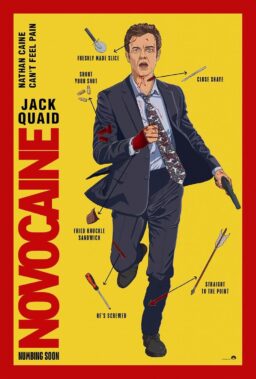“The Bear,” created by Christopher Storer and now entering its third season, has a simple premise: the lives, efforts, errors of a kitchen staff. It’s a workplace show, not an uncommon thing in the history of American television. Where it beats just about everyone else out of the water is how it chooses to tell this story. The restaurant is a metaphor for artistic creation; the artistry of the food easily doubles as a metaphor for television. Does it matter if the food is good if no one comes to eat it? Does it matter if the TV series is good if no one watches it? At what point have you risked too much for your art? Let’s find out.
Given the plot structure of season two’s “Friends and Family,” it would have been easy to assume that each episode of season three would document the restaurant’s growing pains. But instead of going big, Christopher Storer and his writers have downsized. Yes, most episodes feature life at The Bear to some degree, but instead of cameras dancing between the front and back of the house, the writing plumbs the depths of each character’s soul.
“Friends and Family” went about as well as it could have. Executive chef Carmy (a phenomenal Jeremy Allen White) built an environment in which people explored their talents and came together—despite previous, uh, disagreements—to right the ship when it threatened to go under. But due to the sheer depth of his trauma, he became figuratively (and literally) trapped and didn’t witness his achievement. Season three begins the morning after “Friends and Family,” with Carmy walking to a window in his apartment. As dawn creeps over Chicago, apprehension stills Carmy. The thought bubble over his head is almost visible: “Did I dream it? Do I really have to go back?” What follows is the best 31 minutes of television I’ve seen this year, and something quite unusual for “The Bear”: A visit through Carmy’s memories, in what almost feels like a video essay. Sentiment abounds, backed by one in a series of needle drop bangers — Nine Inch Nails’ “Together.” However, as Don Draper once said, just because it has sentiment doesn’t mean it’s sentimental.

We flit through the good: Carmy’s eyes aglow in wonder and joy at the beets and bees and carrots in Noma’s garden, a gentle smile hovering on his lips; impressing a boss with his persistence and gorgeous drawings; Claire, before and during their relationship), the troubling (abuse, familial and workplace, equally destructive), the loss (saying goodbye to his sister when he left for New York, learning of Mikey’s death). Sure, Carmy is a tortured artist, but it’s also not that simple. Fine dining can be an odd collaborative environment. You work in unison with many other people, yet silence often pervades, each person wrapped up in their task and their heads. No wonder he broods—it’s all he’s ever done. He carries with him immense hope, striving to be better, wanting to convey through his food what he cannot verbalize, but he thinks he can fill the void in his heart with perfection because then the pain and loss will have meaning. Carmy’s fatal flaw is that he does not know how wrong he is.
Season two was about (mostly) achieving the harmony required to open a restaurant. Season three is about running the restaurant. Richie (Ebon Moss-Bachrach) got a hero edit last year (“Forks” is a shining achievement in television storytelling), learning to respect his work and himself, ascending new heights as a front-of-house shaman. Inner zen, however, isn’t a panacea. Gaining it is one thing, but preventing old habits from infecting it is quite another. Despite Carmy apologizing for his vicious screed from the walk-in, Richie cannot forgive him, and they spend the season at odds, only to blame each other. Sydney (the magnificent Ayo Edebiri) attempts to mediate, but playing referee to many decades of professional and personal agony is taking a toll on her, too. Sugar is nearing her due date and wonders whether the physical pain is harder to endure than the risk she is taking of trying to be the parent her mother wasn’t. The Faks, of whom there are many this season, provide much-needed comic relief, but even their silly banter proposes some pretty grim theories about why everything is so goddamn hard: what if someone is haunting you? This puts season three’s Proustian memory explorations in a new, frankly grim, light. Is Claire haunting Carmy? Is the restaurant toilet possessed? Is Mikey haunting Richie? Or is it the failure of his marriage to Tiffany, whose marriage to Frank is nearing?

Storer and his colleagues are wise to place a cast of this caliber in basically a season-long series of two-person plays. Multiple characters spend large periods of the already-short episodes together, talking, venting, and laughing, and this creates new textures and dimensions for them to explore. Liza Colón-Zayas is luminous as Tina, sometimes confident, sometimes not, and this season, we learn the origin of this push-pull. Ebon Moss-Bachrach is a looming tower of emotional intensity; his skill at physical comedy coupled perfectly with the dark sorrow in his blue eyes. Abby Elliott gives a masterclass in vulnerability and strength. Oliver Platt beautifully hedges the best of his abrasive demeanor and sincere desire for his financial investment to not destroy his bank account or his nephew. And Lionel Boyce is the heart of this show. A gentle giant immersed in pastry, now on par with Carmy in that the pain of his incalculable loss means they need that Michelin star. It can’t all be for nothing, not anymore.
An aspect of the show that sometimes goes unmentioned but is one of the loveliest it has to offer is its sensory detail. If you, like me, live, breathe, think, and smell food, then you know: I can smell the sweet tang of the blood orange juice Carmy is cranking into tubs, its carnelian hue glowing from miles away. I can taste the golden brown crisp of the halved cipollini onions caramelizing in the pan, the concentric circles providing more hope than god himself. The nettle puree, verdant and merry, glistens; the black garlic sauce gleams; the reductions glide like Olympic swimmers; the perfectly rendered proteins and precisely blanched vegetables create a visual symphony; pears bathed in wine sit stop the pastry station, plummy and plump queens. Where “The Bear” achieves greatness is asking whether this is worth it. Throughout the season, various characters, including famous real-life chefs and figures from the fine dining world, talk about the anguish that creates this bounty.

Another part of the show worth mentioning is its depiction of addiction. My day job is in the mental health field, and I frequently meet folks who are in different stages of their struggles with addiction: they’ve stopped using, they’re trying to stop, they don’t want to stop. But a solid third of everyone I talk to, like Carmy, isn’t struggling with a substance. The addictions of others in their life pushed them over into something deep and dark, a void from which there is no clear escape. Mikey was so afraid that his addiction would derail Carmy that he always kept him away; Carmy, unaware of his brother’s reasoning, resented this and pushed himself further and further till his work was his addiction. He wants his dream to be equally important to his staff but doesn’t understand that he is, in turn, enforcing an addiction on them. He doesn’t have a girlfriend or any hobbies, so it’s hard for everyone else to create balance, too. It’s a tale as old as time, the mad artist pushing everyone around him till he risks being alone forever.
But the rub here is that this is about food, without which humans can’t survive, with which we celebrate birthdays, anniversaries, marriages, divorces, or just getting high with buddies and playing video games till dawn. What looks gorgeous to us, what comprises the bulk of our happiest memories at graduations or a friend’s wedding, was the result of other people’s blood, sweat, tears, therapy bills, and shattered relationships. It’s an honor and a privilege, for sure, to make a delicious plate, set it down, let the food work the magic on the diner. But how you run the kitchen that creates the magic is crucial, and The Bear’s staff are learning just how badly they do, or don’t, want a part of it.
On the recent finale of Bravo’s “Top Chef,” Chef Tom Colicchio remarked on the transitory nature of being a chef as he addressed the three finalist chefs. “By nature, what we do is ephemeral. We create something, it’s here, then it’s gone.” You know what isn’t ephemeral? The beauty of “The Bear.” Season four can’t get here fast enough.
Whole season screened for review. Now on Hulu.


